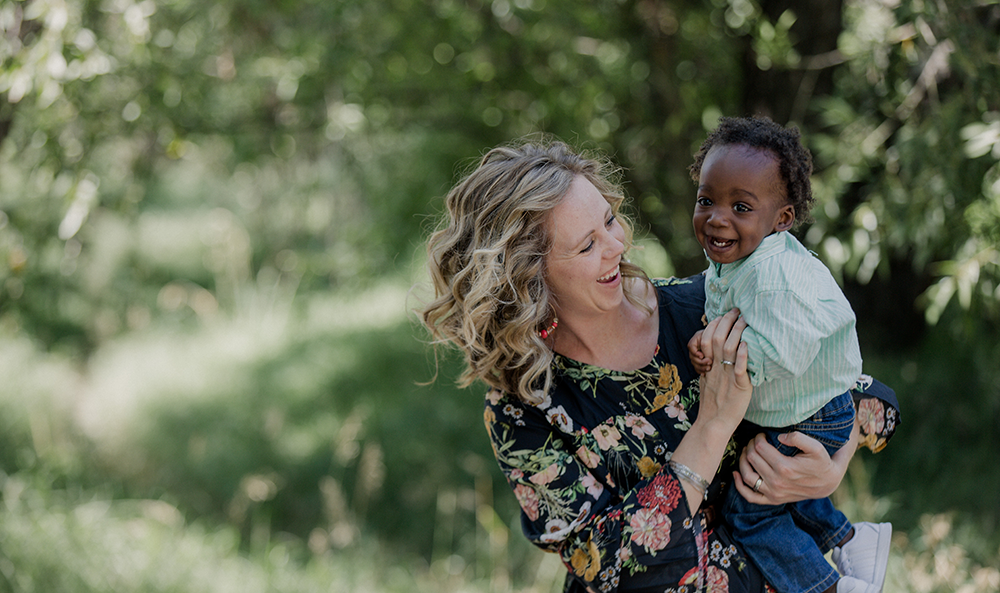3 Truths About Attachment-Based Parenting

This post was written by Dan Coley, Show Hope’s Former Senior Director of Programs.
The first time I heard Trust-Based Relational Intervention® (TBRI®) taught and explained by Dr. Karyn Purvis, it was almost too much to process.
I was overwhelmed by the flood of information and the strategies I needed to immediately incorporate into my family. We were in a desperate place, and though I finally felt tremendous hope, I also knew that it would be easy to slip into a sense of defeat when I considered all that needed to change in the days ahead.
Before we go any further, though, let’s take a quick step back. What is TBRI?
TBRI is a holistic, attachment-based, and trauma-informed intervention that is designed to help meet the complex needs of children impacted by early trauma. This approach was developed by Drs. Purvis and David Cross, and is shared at Show Hope’s Hope for the Journey Conference (formerly the Empowered to Connect Conference). The conference seeks to equip parents and professionals who care for children impacted by adoption and foster care.
Many people can feel overwhelmed the first time they hear about TBRI, just like I did.
I didn’t like the ways I was interacting with my children, and I finally had a new framework for communicating with each of them,—but I was afraid. After learning from Dr. Purvis, I realized I needed a few simple truths to remember when I returned home and stepped back into the day-to-day challenges. I needed a way to remind myself to feel empathetic when my first instinct was frustration. So I made an effort to choose a few things from the conference that would be pivotal for me and worked to remember those. As they became ingrained in my mind, it became easier for them to influence my responses.
Since then, many years have passed, and I have heard the information presented countless times. But my strategy has not changed.
I listen for a few key takeaways at each conference. Sometimes they are lists while other times they are concepts or quotes I don’t want to forget. The following are 3 truth about attachment-based parenting I still carry with me from a conference years ago.
1. Frequency, Intensity, Duration
When I find myself talking to other parents about behavior and meltdowns, they often assure me that what I am experiencing is normal. But research shows that children affected by early trauma experience dysregulation that occurs more often, is stronger in intensity, and lasts longer. Remembering this reality helps me to have empathy for my children and focus on their needs in the most difficult moments.
2. Seeing the Need Behind the Behavior
Before my children were a part of my family, they learned specific behaviors as strategies to have their needs met. Often, these strategies were not learned under the most healthy or ideal circumstances. This means it is important for me to respect the role these learned behaviors played in their lives and to understand when and why they find it necessary to use them again.
At the same time, I need to remember that it is my job to help my child learn new strategies and to use his/her voice to express his/her needs. While this concept was new to me, it is relevant to loving my children and seeing the needs behind their behaviors.
3. The Birthright of Every Child
Regardless of a child’s origins or actions, they have a birthright. They deserve to feel safe, to have a safe adult who listens, and to have their preciousness reflected back to them. Every child is made in the image of God and deserves to know this. It is an incredible privilege that God has given me the opportunity to be that person for my children, and I never want to lose sight of my role in their lives.
It’s a lot harder to live according to these things in day-to-day life than it is to learn them at a conference. But by thinking of them often and continuously relearning them through books and attending conferences, I have become a better parent in my family’s journey toward healing and attachment.
And the great thing about TBRI is that my three takeaways may be totally different from yours. All of our situations are unique, and TBRI offers so much.
There is always more to learn.
Plan to join us for our Hope for the Journey Conference!
Learn more about the conference here.

